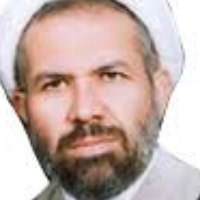Curriculum Rationales and Approaches for Self-Control Education of 7 to 14-Year-Old Students: A Phenomenograghic Study
Author(s):
Article Type:
Research/Original Article (دارای رتبه معتبر)
Abstract:
The aim of this study was to explore, through a phenomenographic study, the rationales and approaches of selected implemented curriculums for selfcontrol. This is an important area to investigate because a central value in the field of religious education is a radical shift from external control to an internal self-control. Moreover, recently there have been various attempts to plan and carry out some educational interventions in the country which are worth investigating. To do so, educational experiences about this subject were considered and semi-structured interviews with teachers were carried out. It is worth mentioning that the participants of this qualitative research were selected via purposive sampling and the obtained data were analyzed through analytic, inductive method. Findings of this phenomenographic research are: In the main category of rationale of self-control curriculum there were two subcategories, i.e., religious rationale and pre-religious or anthropological rationale. In the main category of curriculum approaches about freedom or obedience of learners three subcategories were identified: maximum freedom irrespective of learners age, maximum obedience regardless of learners age and freedom and obedience in accordance with learners age and conditions.
Keywords:
Language:
Persian
Published:
Journal of Applied Issues in Islamic Education, Volume:2 Issue: 4, 2017
Pages:
87 to 116
https://magiran.com/p1795617
مقالات دیگری از این نویسنده (گان)
-
Critical Review of Existing Classifications of Religious Sciences and Presentation of a Goal-Oriented Alternative: A Step towards a Civilizational Perspective
Maghsoud Amin Khandaghi *, Azam Mohamadzadeghasr, Morteza Karami, , Saeed Javad Ghandili
The Qur’an and Science, -
A Philosophical Explanation of "Te Whariki" (The New Zealand National Early Childhood Education Program) and its critical review from the perspective of "Philosophy of Education in the Islamic Republic of Iran”
Mohammad Ppourhoseini, Ali Reza Sadegh Zadeh Ghamsari *, Ebrahim Talaei, Mohsen Imani Naeini
,



